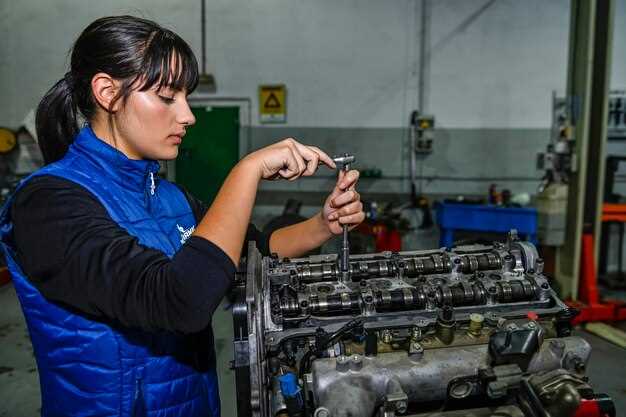
How to Know When Your Engine Needs Repair
- Arthur Rodriquez
- 0
- Posted on

The engine is the heart of your vehicle, playing a crucial role in its overall performance and reliability. Recognizing warning signs early can save you from costly repairs and potential breakdowns. Ignoring these indicators may lead to severe damage, impacting not only your engine but also your safety on the road.
It is essential to pay attention to unusual sounds, smells, or behaviors that your vehicle may exhibit. If your engine is struggling to start, producing strange noises, or emitting excessive smoke, these are clear signs that immediate repair is necessary. Understanding these warnings can help you address the issues promptly and ensure a smooth driving experience.
Regular maintenance and proactive monitoring are key to preventing serious engine problems. By being aware of the early warning signs, you can take the necessary steps to keep your engine in top condition, avoiding unexpected breakdowns and prolonging the life of your vehicle.
Unusual Noises Indicating Engine Trouble
Hearing unusual noises from your engine can be a significant warning sign that immediate repair is needed. Various sounds can indicate different issues, and recognizing them early can prevent further damage.
If you notice a knocking or tapping sound, this may suggest that the engine’s components are not lubricated adequately, which can lead to serious damage if ignored. A grinding noise might point to problems with the transmission or other moving parts, indicating they need professional attention.
Squealing sounds often indicate worn or loose belts, which are essential for the engine’s function. Ignoring such a noise might result in the belts breaking, leading to engine failure.
Another concerning noise is a loud rumble or backfiring that may signal an exhaust system issue or a problem with the ignition system. These sounds require immediate investigation and repair to ensure the vehicle operates safely.
Finally, any hissing or popping sounds can indicate overheating or leaking fluids, potentially putting your engine at great risk. Addressing these unusual noises promptly will not only help in maintaining the health of your engine but also ensure your safety on the road.
Check Engine Light: What It Really Means

The check engine light is a crucial warning sign that indicates your vehicle’s engine may require immediate attention. When this light illuminates on your dashboard, it is a signal that the onboard diagnostics system has detected an issue that could affect the engine’s performance or emissions.
This warning can stem from various problems, ranging from minor issues, such as a loose gas cap, to more serious engine malfunctions, like faulty spark plugs or a failing catalytic converter. Ignoring this light may lead to further damage, impacting your vehicle’s efficiency and safety.
It’s essential to recognize the signs associated with the check engine light. If the light is steady, it typically means a problem has been identified, but it may not require immediate action. However, if the light is blinking, this indicates a more severe issue that demands urgent attention, as it could potentially cause significant engine damage.
Regular maintenance and timely diagnostics can help you address warning signs early, preventing costly repairs and ensuring your engine runs smoothly. Always seek professional help if you are unsure about the implications of the check engine light. Responding promptly to this warning is vital for the health of your engine.
Fluid Leaks and Their Implications for Engine Health

Fluid leaks represent a significant warning sign that your engine may require immediate repair. When you notice any liquid pooling under your vehicle, it is crucial to identify the source and type of fluid. Common leaks include engine oil, coolant, transmission fluid, and power steering fluid, each indicating different issues that can ultimately affect engine performance.
Engine oil leaks are particularly alarming, as they can lead to decreased lubrication and increased friction within the engine. This can result in severe wear and tear, and if not addressed promptly, it could lead to catastrophic engine failure.
Coolant leaks can lead to overheating, which poses a critical threat to engine integrity. An engine running without sufficient coolant can result in warped components and extensive damage that would necessitate costly repairs.
Transmission fluid leaks are another red flag, often leading to shifting problems and compromised transmission health. Ignoring these leaks can result in complete transmission failure, necessitating an expensive replacement.
Lastly, power steering fluid leaks can affect steering responsiveness and control, which poses safety risks while driving. Addressing these leaks quickly is essential not only for vehicle performance but also for your safety on the road.
If you detect any fluid leaks, it is imperative to seek professional assessment and repair as soon as possible to prevent further damage to your engine.